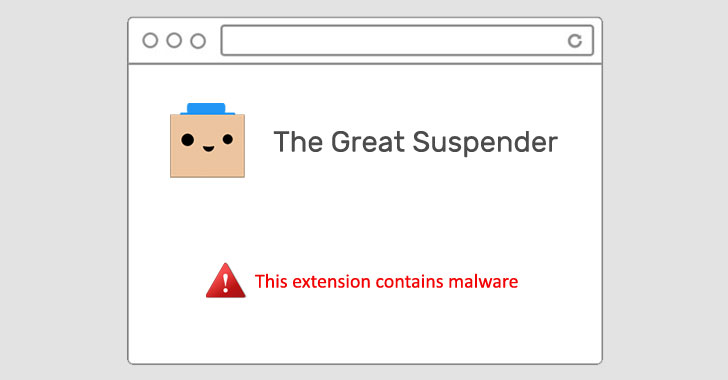Google on Thursday removed The Great Suspender, a popular Chrome extension used by millions of users, from its Chrome Web Store for containing malware. It also took the unusual step of deactivating it from users' computers.
"This extension contains malware," read a terse notification from Google, but it has since emerged that the add-on stealthily added features that could be exploited to execute arbitrary code from a remote server, including tracking users online and committing advertising fraud.
"The old maintainer appears to have sold the extension to parties unknown, who have malicious intent to exploit the users of this extension in advertising fraud, tracking, and more," Calum McConnell said in a GitHub post.
The extension, which had more than two million installs before it was disabled, would suspend tabs that aren't in use, replacing them with a blank gray screen until they were reloaded upon returning to the tabs in question.
Signs of the extension's shady behavior had been going the rounds since November, leading Microsoft to block the extension (v7.1.8) on Edge browsers last November.
According to The Register, Dean Oemcke, the extension's original developer, is said to have sold the extension in June 2020 to an unknown entity, following which two new versions were released directly to users via the Chrome Web Store (7.1.8 and 7.1.9).
Users of the extension can recover the tabs using a workaround here, or as an alternative, can also use the latest version available on GitHub (v7.1.6) by enabling Chrome Developer mode.
But turning on the Developer mode can have other consequences, too, as revealed by security researcher Bojan Zdrnja, who disclosed a novel method that lets threat actors abuse the Chrome sync feature to bypass firewalls and establish connections to attacker-controlled servers for data exfiltration.
Zdrnja said the adversary created a malicious security add-on that masqueraded as Forcepoint Endpoint Chrome Extension for Windows, which was then installed directly on the browser after enabling Developer mode.
"While there are some limitations on size of data and amount of requests, this is actually perfect for C&C commands (which are generally small), or for stealing small, but sensitive data – such as authentication tokens," Zdrnja said.
But given that this attack requires physical access to a target system, it is unlikely to be resolved by Google.




























